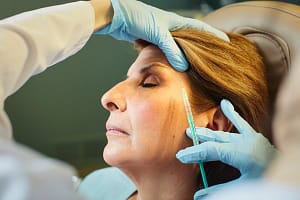Public Health England (PHE) have started surge testing in Hounslow, London which is the capital’s Indian variant hotspot, which has four times the average number of cases in the UK this last week.
Residents and workers in Hounslow have been placed on standby to be vaccinated and take a Covid test.
The London regional director for PHE, Professor Kevin Fenton said, “Rates of Covid-19 in London are low overall but we are continuously assessing local situations and will act early and decisively where necessary.
“As part of the latest review, surge testing and increased vaccination is being mobilised in Hounslow to help us track the spread of this variant, reduce the risk of further transmission and get vaccine protection to more residents, more quickly.”
Hounslow has the highest cases out of all 32 London borough’s as 56 people tested positive per 100,000 population in the week to Saturday.
Mayor of London Sadiq Khan said, “I urge everyone who lives, studies or works in Hounslow to take a test as soon as you are invited to, in order to monitor and suppress the spread of the virus, and for all those invited to accept their vaccine as soon as you are offered it to ensure you are protected.”
The Health Secretary Matt Hancock told MPs today that the Indian variant of cases has now reached almost 3,000 in the UK.
On Monday cases were at 2,323 and as of Wednesday there are now 2,967 known cases which has gone up by 28%.
Hancock said that surge testing and vaccinations will start at Hounslow in London, North Tyneside, Leicster, Bedford, Burnley and Kirklees.
Hancock told MPs, “What this means in practice is we are putting in place more testing and more testing sites.
“On vaccinations, we are making more vaccinations available to everyone who is eligible.”
The Health Secretary added, “But this challenge is not restricted to Bolton and Blackburn.
“We have used the extensive bio-security surveillance system that we have built and new techniques to identify the areas we are most concerned about where we will now surge testing and vaccinations further.”
“So just using vaccination may not be enough to contain it, meaning you may actually have to put places into lockdown.”






Leave a Comment